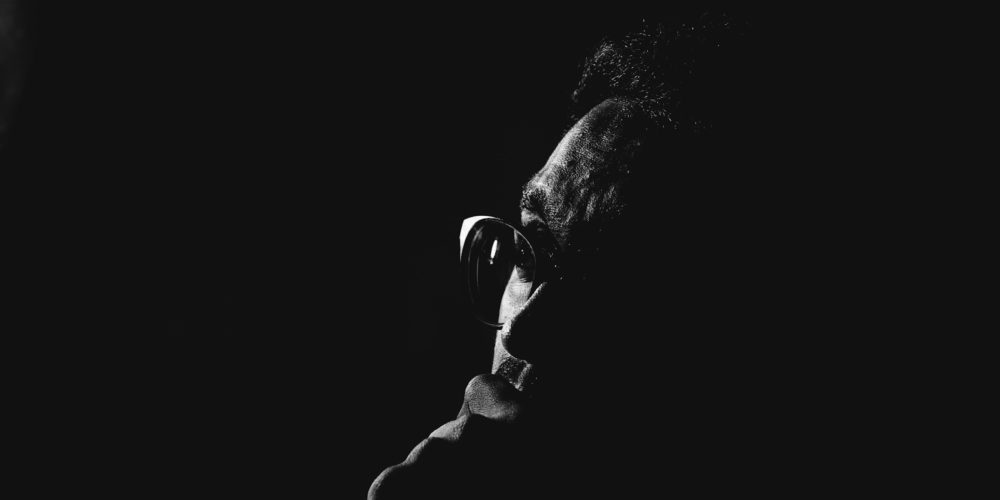Why doubt is a powerful tool for enlightenment

Are you riddled with doubt? That’s great. So am I.
Albert Camus, famous French author, Nobel laureate, and renowned public intellectual, was also plagued by doubt. In his words: “I do not know what I am looking for, I name it cautiously, I take back what I have said, I repeat myself, I advance, and I retreat. Yet I am called upon to settle on names, or the name, once and for all. I rebel then; when you name something, isn’t it already lost? At least, that is what I can try to explain.”
Take a look at those words again. He does not know; he is cautious; he advances; he retreats. He is given names and tags; he resists them. He decries absolute certainty.
So should we all. Who are we to be absolutely certain of anything? Our consciousness is tainted by the problem of perception. We do not see anything with cold objectivity. We are biased creatures, shaped by our upbringings and our circumstances. Being subjected to poverty or wealth, comfort or distress, war or peace—these cause us to be something in particular, and to view the world around us in particular ways.
We pretend to be rational, logical creatures, yet we all ride on waves of emotion, acknowledged or not. We are swayed by sentiments about a situation: we feel anger, pity, revulsion, and much else, and ascribe rationality to these feelings.
In addition, we are self-absorbed creatures. We place ourselves at the centre of everything. Our feelings are the most important; our perceptions are the most accurate. This is patently wrong, yet we all act as though only we matter. We are petty and basic; we seek our own pleasures and comforts, whilst proclaiming this quest to be in the interests of all.
Why should this flawed and limited creature, this human, be sure of anything? And yet.
We look around and we see the confident, the cocksure, the bold, the boastful, the arrogant ones taking all the oxygen. They are the ones who lead and are followed; they postulate and are believed. They lead mostly into ruin, and still the meek follow. They offer mostly garbage, but the gullible line up to partake.
In politics, they are convinced they are right—even though they may have been telling you the literal opposite only recently. They think only their ideologies and manifestos have any merit; those of their opponents are dangerous gobbledegook. They posture and bluster; they hurl fiery rhetoric and infantile insult. Eventually, their sure-fire certainties take their people into unnecessary conflicts and massive economic blunders.
In organisations, too, doubt is to be dispelled. It is seen to be the mark of the leader to be sure and certain, confident and convincing. We hire people who exhibit those traits in interviews; we promote them to lead others. And then, someday, their much-hyped certainties about strategy and operations and culture and everything else are revealed to be built on sand.
The truly thoughtful person is very cautious about certainty. Even when convinced something is correct, such persons harbour lingering doubts. Even when they promote something enthusiastically, there is a tiny voice at the back of the mind saying: what if this turns out to be wrong? The true achievement is to proceed in the knowledge that we may well be wrong—rather than to banish the thought altogether.
“All humans are stupid,” said the comedian John Cleese, “but the smarter ones at least have a handle on their own ignorance.” When we embrace doubt, we embrace flexibility and fluidity. We cease the masquerade of certainty, and we become ready to take on a world full of uncertainty. We try things out, we learn lessons, we make adjustments. We become lifelong learners, and we have greater, more sustained achievements. Simply because we have doubts, and because we don’t offer quick, easy, sure-fire solutions.
Benjamin Franklin pointed out: “Most people die at 25 and aren’t buried until they are 75.” They embrace cast-iron certainties, ideologies, and dogmas early in life, and then proceed to live a life of serial confirmation bias. Every piece of information, every lived experience, every observation is tainted and twisted to confirm that which they already believe to be true. They learn nothing new; they are buried with their false convictions.
Camus reminded us that Pope Alexander VI often used to have great bonfires of rubbish lighted in his presence so that that he might not forget that all the glory of this world is like passing smoke. We should, all of us, burn our rubbish—our misplaced beliefs and ideas—from time to time, to remind us of our flaws.
Do I believe everything I have just written here to be absolutely correct? Not at all. I have my doubts. But I am willing to be proved wrong, and to learn from that.

Buy Sunny Bindra's new book
The X in CX
here »
Popular Posts
- The pause that saves usJune 8, 2025
- Where are you rushing to—your funeral?June 29, 2025
- How to spot a real thinkerJune 15, 2025
- Built the app, forgot the flowJune 22, 2025
- The first push is the hardestJune 1, 2025















